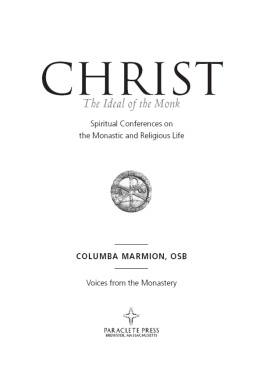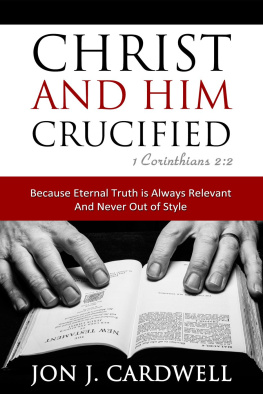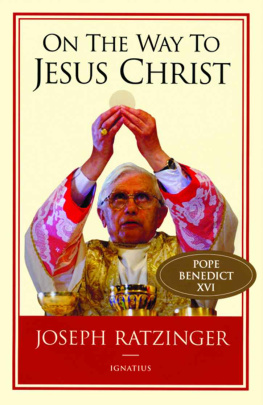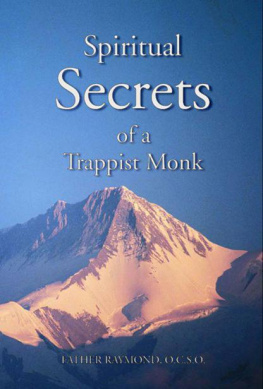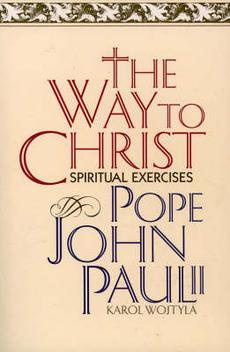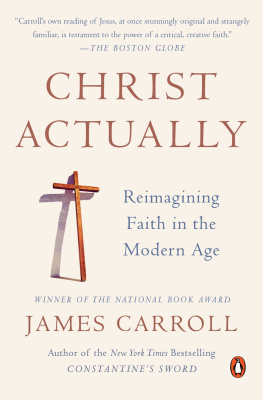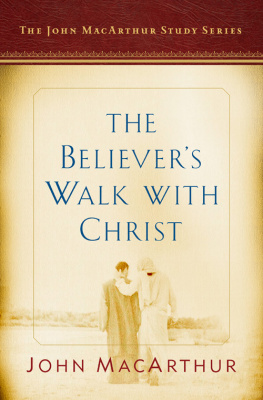
CHRIST
The Ideal of the Monk
CHRIST
The Ideal of the Monk
Spiritual Conferences on the Monastic and Religious Life

________
COLUMBA MARMION, OSB
________
Voices from the Monastery

PARACLETE PRESS
BREWSTER, MASSACHUSETTS
2014 First Printing
Christ: The Ideal of the Monk
The Right Rev. D. Columba Marmion, OSB, Christ, the Ideal of the Monk: Spiritual Conferences on the Monastic and Religious Life, translated from the French by a nun of Tyburn Convent. Nihil Obstat and Imprimatur, February 11, 1926.
Copyright 2014 by Paraclete Press, Inc. (this edition, which is abridged and features a translation slightly modified from the 8th edition of 1926)
ISBN 978-1-61261-573-8
All quotations from Holy Scripture are taken from the New Revised Standard Version, copyright 1989, Division of Christian Education of the National Council of the Churches of Christ in the United States of America. Used by permission. All rights reserved.
The Paraclete Press name and logo (dove on cross) is a trademark of Paraclete Press, Inc.
Library of Congress Cataloging-in-Publication Data
Marmion, Columba, Abbot, 1858-1923.
[Christ, idal du moine. English]
Christ, the ideal of the monk / Abbot Columba Marmion, OSB.
pages cm
Voices from the monastery.
This edition, which is abridged and features a translation slightly modified from the 8th edition of 1926).
ISBN 978-1-61261-573-8 (trade pbk.)
1. Monastic and religious life. 2. Benedict, Saint, Abbot of Monte Cassino. Regula. 3. Monasticism and religious orders. 4. Spiritual lifeCatholic Church. I. Title.
BX2435.M3813 2014
248.8'942dc23 2014024451
10 9 8 7 6 5 4 3 2 1
All rights reserved. No portion of this book may be reproduced, stored in an electronic retrieval system, or transmitted in any form or by any meanselectronic, mechanical, photocopy, recording, or any otherexcept for brief quotations in printed reviews, without the prior permission of the publisher.
Published by Paraclete Press
Brewster, Massachusetts
www.paracletepress.com
Printed in the United States of America
Preface
C HRIST J ESUS IS THE SUBLIME I DEAL OF ALL holiness, the divine model presented by God himself for the imitation of his elect. Christian holiness consists in the complete and sincere acceptation of Christ by faith, and in the expansion of this faith by hope and charity. It implies the stable and total hold exercised by Christ upon our activity through the supernatural influence of the Holy Spirit. Christ Jesus, the Alpha and Omega of all our works, becomes by the communication of his own life, the very life of our souls: living is Christ and dying is gain (Phil. 1:21).
But besides the precepts laid down by Christ to his disciples as condition of salvation and essential holiness, there are found in the Gospels some counsels that Christ proposes to those who wish to make the ascension of the sublime heights of perfection: If you wish to be perfect, go, sell your possessions, and give the money to the poor, and you will have treasure in heaven; then come, follow me (Matt. 19:21). These are undoubltedly only counsels. If you wish, said the master.
Still, the magnificent promises made by Christ to those who follow them show the value he attaches to their observance. Such observance has for its aim a more complete and more perfect imitation of the Savior. Once again, Christ is the way and the model, and spiritual perfection is the full acquisition and the entire taking possession of the soul by the teaching and example of the Word Incarnate.
These are the thoughts that I have endeavored to comment upon in the present volume. I have constantly placed the divine figure of Christ before the eyes of privileged souls called to walk in the path of the counsels: nothing is so efficacious as this contemplation to touch and draw souls and to obtain from them the necessary efforts in view of remaining faithful to so high a vocation and one so rich in eternal promises.
May these pages make a great number of souls better understand the nature of this perfection to which God so widely invites Christians, to increase in some of them the esteem of the religious vocation sometimes misunderstood by our age, to help some realize in themselves the call of grace, or to triumph over obstacles that natural affections or the spirit of the world oppose to its call. May these chapters, above all, animate the first fervor of such consecrated souls whose perseverance perhaps is wearied by the length of the way, obtain for those who are faithful to their vows the resolution of applying themselves without relaxing to attain the summit of the virtues, and stimulate the best of ambitionsever unsatisfiedthat of holiness!

CHRIST
The Ideal of the Monk
Chapter One
TO SEEK GOD
________
W HEN WE EXAMINE THE R ULE OF S T. B ENEDICT, we see very clearly that he presents it only as an abridgement of Christianity, and a means of practicing the Christian life in its fullness and perfection. We find the great patriarch declaring from the first lines of the Prologue of his Rule that he only addresses those who wish to return to God under Christs leadership. And in ending the monastic code he declares that he proposes the accomplishment of this rule to whomever, through the help of Christ, hastens to the heavenly country.
To his mind, the Rule is but a simple and safe guide for leading to God. In writing it, St. Benedict does not wish to institute anything beyond or beside the Christian life: he does not assign to his monks any special work as a particular end to be pursued. The end is, as he says, to seek God. This is what he requires, before all, of those who come to knock at the door of the monastery to be received as monks. In this disposition he resumes all the others. It gives, as it were, the key to all his teaching, and determines the mode of life he wishes to see led by his sons. This is the end that he proposes and this is why we ought always to have this end before our eyes, to examine it frequently, and above all, only to act in view of it.
You know that every person, as a free and reasonable creature, acts from some deliberate motive. Let us imagine ourselves in a great city like London. At certain hours of the day the streets are thronged with people; it is like a moving army. It is the ebb and flow of a human sea. People are coming and going, elbowing their way, passing to and fro, and all this rapidlyfor time is moneyalmost without exchanging any signs among themselves. Each one of these innumerable beings is independent of the others and has his own particular end in view. What are they seeking, these thousands and thousands of people who are hurrying in the city? Why are they in such a hurry? Some are in search of pleasure, others pursue honors, urged by the fever of ambition or the thirst for gold. The greater number are in quest of daily bread. Out of this immense crowd pursuing created things, only a very small number are working for God alone.

A nd yet the influence of the motive is predominant in the value of our actions. Consider two men who are embarking together for a far-off destination. Both leave country, friends, family, and landing on a foreign shore they penetrate into the interior of the country. Exposed to the same dangers, they cross the same rivers and the same mountains. The sacrifices they impose upon themselves are the same. But one is a merchant urged on by the greed of gold, while the other is an apostle seeking souls. This is why, although the human eye can scarcely discern the difference, an abyss that God alone can measure separates the lives of these two men. This abyss has been created by the motive. Give a cup of water to a beggar, a coin to a poor man, and if you do so in the name of Jesus Christ, that is to say from a supernatural motive of grace, because in this poor man you see Christ who said: Just as you did it to one of the least of these who are members of my family, you did it to me (Matt. 25:40), your action is pleasing to God. That cup of water, which is nothing, that small coin, will not remain without a reward.
Next page
